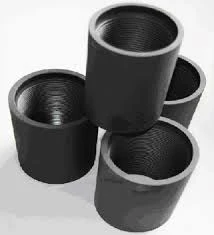- Afrikaans
- Albanian
- Amharic
- Arabic
- Armenian
- Azerbaijani
- Basque
- Belarusian
- Bengali
- Bosnian
- Bulgarian
- Catalan
- Cebuano
- Corsican
- Croatian
- Czech
- Danish
- Dutch
- English
- Esperanto
- Estonian
- Finnish
- French
- Frisian
- Galician
- Georgian
- German
- Greek
- Gujarati
- Haitian Creole
- hausa
- hawaiian
- Hebrew
- Hindi
- Miao
- Hungarian
- Icelandic
- igbo
- Indonesian
- irish
- Italian
- Japanese
- Javanese
- Kannada
- kazakh
- Khmer
- Rwandese
- Korean
- Kurdish
- Kyrgyz
- Lao
- Latin
- Latvian
- Lithuanian
- Luxembourgish
- Macedonian
- Malgashi
- Malay
- Malayalam
- Maltese
- Maori
- Marathi
- Mongolian
- Myanmar
- Nepali
- Norwegian
- Norwegian
- Occitan
- Pashto
- Persian
- Polish
- Portuguese
- Punjabi
- Romanian
- Russian
- Samoan
- Scottish Gaelic
- Serbian
- Sesotho
- Shona
- Sindhi
- Sinhala
- Slovak
- Slovenian
- Somali
- Spanish
- Sundanese
- Swahili
- Swedish
- Tagalog
- Tajik
- Tamil
- Tatar
- Telugu
- Thai
- Turkish
- Turkmen
- Ukrainian
- Urdu
- Uighur
- Uzbek
- Vietnamese
- Welsh
- Bantu
- Yiddish
- Yoruba
- Zulu
Understanding the Function and Purpose of a Bull Plug in Plumbing Systems
Understanding Bull Plugs Definition, Usage, and Importance
In various contexts, the term bull plug may evoke different images or uses, but in this discussion, we will focus primarily on its applications in the realms of plumbing and industrial settings. Bull plugs, also known as pipe plugs, are essential components used to seal or close off the ends of pipes to prevent the unwanted flow of liquids or gases. In this article, we will delve deeper into what bull plugs are, their types, uses, and why they hold significant importance in various industries.
What is a Bull Plug?
A bull plug is a fitting commonly used in plumbing and construction that serves to close off the end of a pipe. It is often made from durable materials such as plastic, brass, or stainless steel, designed to withstand high pressures and resist corrosion. By securely sealing the pipe, bull plugs prevent leaks and facilitate the maintenance of systems transporting fluids or gases.
Types of Bull Plugs
Bull plugs come in a variety of sizes and styles, depending on their intended use. The most common types include
1. Threaded Bull Plugs These have threads on the outside, allowing them to be screwed directly into the threaded ends of pipes. Threaded bull plugs create a tight seal and are commonly used in systems where disassembly and reassembly may be necessary.
2. Slip Bull Plugs These plugs are smooth and are meant to be inserted into the end of a pipe. They are often used in applications where a quick seal is needed, such as temporary shutdowns or maintenance procedures.
3. Blind Flanges While not strictly a bull plug, blind flanges serve a similar purpose by closing off the end of a pipeline. They are flat pieces of material that can be bolted onto flanged connections, providing an airtight seal.
Common Uses of Bull Plugs
Bull plugs are widely utilized across various industries for a multitude of reasons
what is bull plug

- Plumbing In residential and commercial plumbing, bull plugs are used to seal off unused pipe ends, preventing leaks and potential water damage.
- Oil and Gas In the oil and gas sector, bull plugs are critical in high-pressure environments, where sealing pipe ends is vital to ensure safety and prevent leaks of hazardous materials.
- Manufacturing In manufacturing facilities, equipment often requires temporary shutdowns for maintenance. Bull plugs allow for safe and effective sealing during these downtime periods.
- HVAC Systems In heating, ventilation, and air conditioning systems, bull plugs can be used to seal ducting components temporarily, allowing for easy testing and maintenance.
Importance of Bull Plugs
The significance of bull plugs cannot be overstated. First and foremost, they enhance safety by preventing leaks that can lead to hazardous spills, particularly in industries handling volatile substances. Containing these substances is crucial not only for the cleanliness of the environment but also for the safety of the workforce.
Moreover, bull plugs aid in system efficiency. By sealing off unused pipe segments, they help maintain the pressure within a system, ensuring that operations run smoothly without unnecessary interruptions or inefficiencies.
Lastly, from a cost perspective, bull plugs are an economical solution for temporary sealing needs. Their simple design and effective functionality make them a go-to option for engineers and maintenance personnel across various sectors.
Conclusion
To sum up, bull plugs are an essential piece of equipment in many industrial applications, plumbing systems, and maintenance procedures. Understanding their types, uses, and importance can aid in selecting the right components for specific applications, ensuring the smooth, safe operation of various systems. Whether in a residential setting or an industrial environment, recognizing the value of bull plugs highlights their critical role in infrastructure and facility management.
-
Tubing Pup Joints: Essential Components for Oil and Gas OperationsNewsJul.10,2025
-
Pup Joints: Essential Components for Reliable Drilling OperationsNewsJul.10,2025
-
Pipe Couplings: Connecting Your World EfficientlyNewsJul.10,2025
-
Mastering Oilfield Operations with Quality Tubing and CasingNewsJul.10,2025
-
High-Quality Casing Couplings for Every NeedNewsJul.10,2025
-
Boost Your Drilling Efficiency with Premium Crossover Tools & Seating NipplesNewsJul.10,2025







